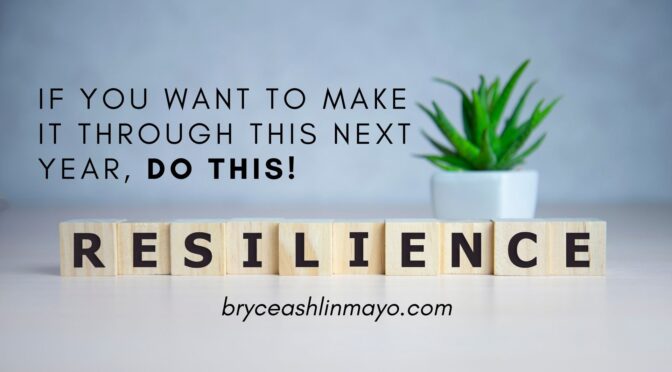Sometimes the world works counterintuitively. Sometimes you must go backwards to go forwards. Sometimes you must steer right to go left.
For example, when you navigate a sailboat, you must turn the tiller in the opposite direction you want the vessel to go. Or, when riding a motorcycle, if you’re going to make a hard right turn, you must turn the handlebar sharply to the left. Sometimes things are counterintuitive.
This same principle is true for resilience and promoting physical and mental health during increased and prolonged stress. What we want or are inclined to do is often the opposite of what we need.
As we persevere through this pandemic, the stress is prolonged and compounded. It is both cumulative and exponential. The way to survive this sustained stress is counterintuitive.
This should not come as a surprise. The way to health is often the opposite of what we are prone to. For example, you expel energy (through exercise) if you want more energy. Additionally, if you struggle with inclinations to withdraw from others in times of stress, the opposite is a better choice: embracing healthy relationships and community. Health is often found in the opposite direction that we are prone to travel in times of stress.
When times are challenging, and we are experiencing extended seasons of stress, we all have a tendency and impulse to focus on ourselves. However, counterintuitively, the healthiest thing we can do is care for others. Research states that when we care for others, check in on them, practically care for them and pray for them, we feel better. And it is not for the reasons you think.
It is not because you will realize someone else has it worse than you.
It is not because you will get a warm fuzzy feeling for doing a good deed, although that may occur.
Instead, there is something intrinsically life-giving when we love and care for others. When we care and show compassion for others, we begin to recalibrate our self-talk and become more compassionate with ourselves. We rewire our brains towards compassion.
“Research also shows that when we do focus on caring for others in times of stress, it changes our brain chemistry in such a way that produce feelings of both hope and courage.” (Why Has Nobody Told Me This Before by Julie Smith, pg. 253)
Thus, if you want to survive this season of prolonged stress as a church leader, family member, business owner, etc., one of the best things you can do is find others to care for, not just others to care for you. Although it may be counter-intuitive, it is one proven strategy in building resiliency.
Now, I need to make an important distinction that this is not about removing healthy boundaries with people. Or, if you are suffering from compassion fatigue, this is not calling you to feel guilty for not caring for others or having the ability to do so. It is essential to draw healthy boundaries and keep them in those circumstances. Instead, I am referring to those just struggling to find hope and courage in this stressful pandemic season.
Therefore, if you are wrestling with hope and courage, find resilience by counterintuitively giving them away! As you encourage and bless others, you will be blessed as a result.





